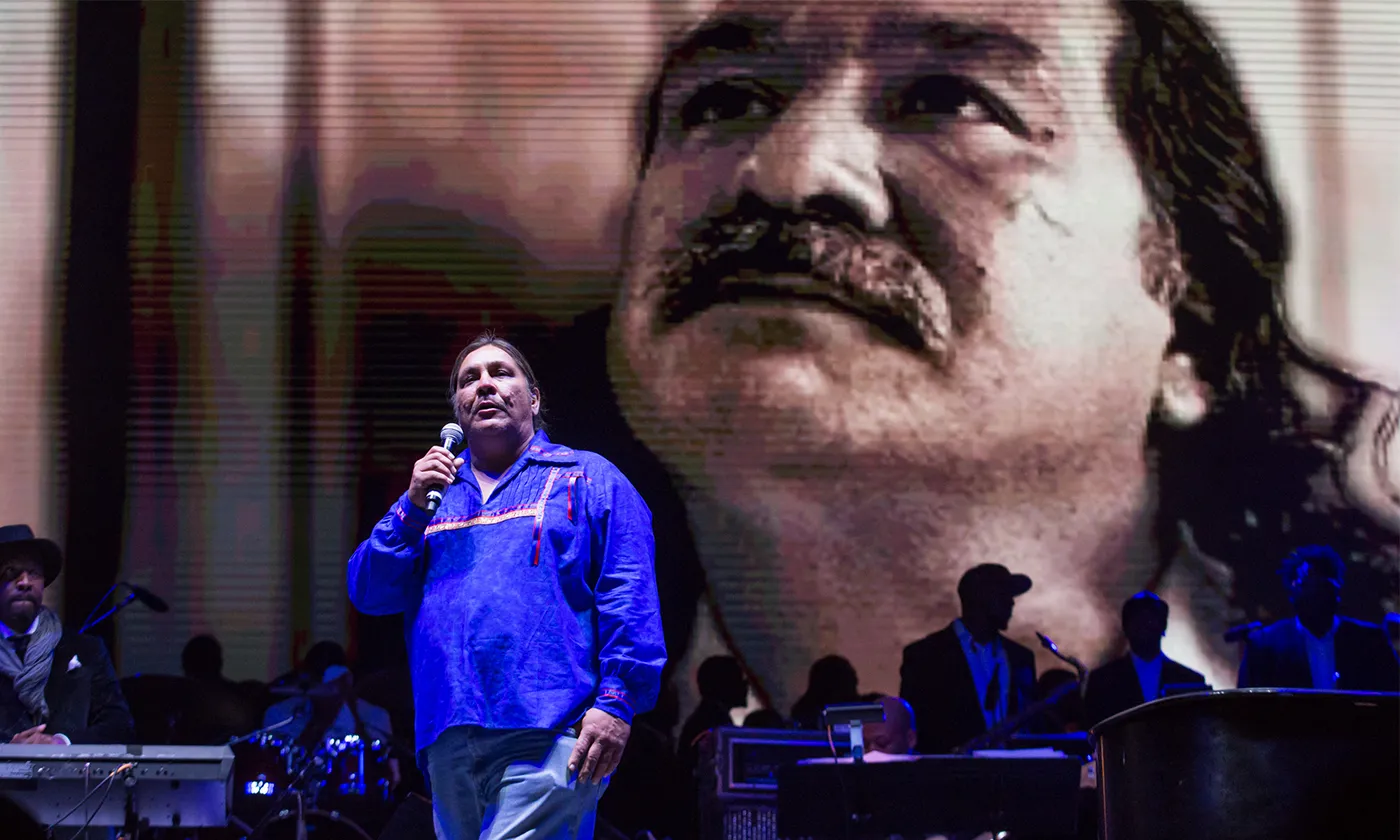By Nick Tilsen, January 31, 2025
Minutes before leaving office, former President Biden issued executive clemency to Leonard Peltier, commuting the remainder of his life sentence to be served at home. While the most just outcome would have been a full pardon, Peltier’s release after 49 years of incarceration is an undeniable victory. Now, at 80 years old, Peltier has the chance to reunite with his family, receive critical medical care, continue his art, and share his story with the world.
Peltier’s freedom is priceless in its own right. But just as his wrongful imprisonment symbolized the systemic oppression of Indigenous peoples, his release embodies the liberation that’s possible through intergenerational organizing. It speaks to the possibilities of collective Indigenous power.
Peltier’s entanglement with carceral systems began at the age of 9 when he was forcibly taken from his grandmother’s home and sent to a federally funded boarding school hundreds of miles away—a traumatic displacement that was part of a broader policy of cultural genocide against Indigenous peoples.
Decades later, while fighting on the front lines for Indigenous rights and land—and against federal agents trying to suppress the American Indian Movement—he was wrongfully convicted in the deaths of two of those agents. Peltier’s story is a microcosm of the systemic injustice Native people have endured—a reminder of the United States’ dedication to exploiting, incarcerating, and attempting to erase Indigenous peoples.
Yet, despite nearly half a century behind bars, Peltier never gave up. He maintained hope and fought for his freedom by staying connected to his spirituality, culture, and people. His resilience inspired generations to join the movement for Indigenous justice, underscoring the power of intergenerational activism grounded in ceremony and community.


